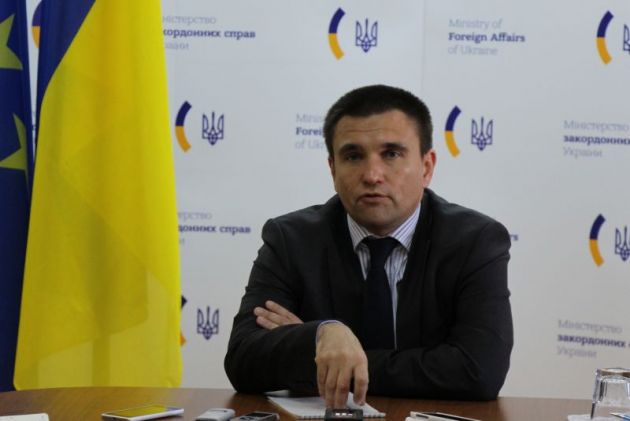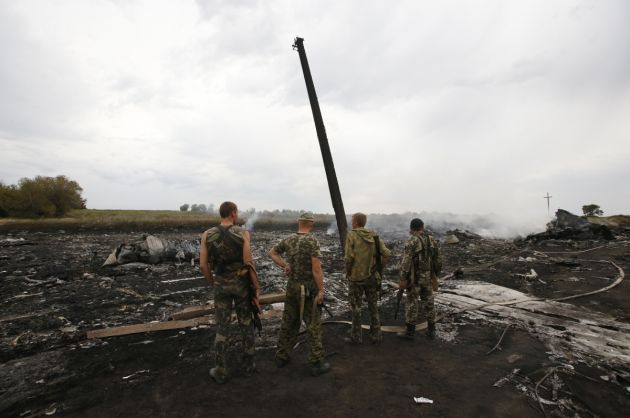Vatican urges UN Security Council to take all steps to implement Ukraine ceasefire

The Vatican has urged the United Nations Security Council to take "all necessary steps" to enforce a ceasefire and to implement measures agreed upon on Ukraine as concerns grow about worsening tensions on its eastern border with Russia.
The Permanent Observer of the Holy See to the United Nations, Archbishop Bernardito Auza, spoke at a meeting of the U.N. Security Council on Feb. 22, the Ukrainian Greek-Catholic Church.
"Concerning the conflict in Ukraine, which continues to cause grave concern since it began in 2014, the Holy See underscores once again that all necessary steps should be taken to enforce the ceasefire and to implement the measures agreed upon," Archbishop Auza said.
Such efforts should be accompanied by the "sincere commitment of all involved parties" to respect all fundamental human rights and restoring stability at the national and international levels.
This should be done "not least by respecting international legality with regard to Ukraine's territory and borders," said the Vatican envoy.
Due to ongoing instability and conflict in Ukraine since April 2014, areas primarily in the eastern part of the country have experienced a deteriorating humanitarian situation, Reliefweb reports.
Heavy shelling and armed conflict has led to significant displacement of people. Unfortunately, political negotiations conducted have not succeeded so far in ending the conflict in eastern Ukraine.
On the same day of the Holy See plea, Ukraine called for reform of the United Nations Security Council's structure to prevent Russia from using its veto power on the council to obstruct actions involving the conflict in eastern Ukraine.
"We need urgently to reform the Security Council in order to remove the veto power abuses," said Ukrainian Foreign Minister Pavlo Klimkin, who chaired a meeting of the council on unresolved conflicts in Europe on February 21, Russia's Tass news agency reported.
A provision of the council's charter requires that "a party to a dispute shall abstain from voting" when the council acts, but it has been "blatantly ignored," he said.
Russia used its power, for example, to block an initiative to set up an international tribunal to prosecute those responsible for downing Malaysian Airlines flight MH17 in 2015 over the war zone in eastern Ukraine, killing hundreds of people, Radio Free Europe reported Feb. 22.
The council should be able to address "bloody conflicts" regardless of whether one of the parties involved is a permanent council member with veto power, Klimkin said.
The five permanent members of the Security Council are: Britain, China, France, Russian and the United States, which each have the right veto any decision made by it.
Russia maintains that it has no troops in Ukraine despite evidence to the contrary, has previously rejected as unacceptable any curbs on its veto power.
On Feb. 23, the leader of the Ukrainian Greek-Catholic Church has appealed to the international community to take diplomatic action and stop the continuing violence in Eastern Ukraine.
Speaking to Vatican Radio, Sviatoslav Shevchuk, Major Archbishop of the Ukrainian Greek-Catholic Church, said that Europe must not allow the humanitarian emergency unfolding at its heart to go unnoticed.
"We know there can be no military solution to the conflict in Ukraine that's why I appeal to the international community to continue to push forward diplomatic efforts for a ceasefire" he said.
This week a ceasefire between Ukrainian troops and Russian-backed separatists came into effect but the head of the Organization for Security and Cooperation in Europe said violations to the ceasefire are already occurring.
The ceasefire is the latest attempt to enforce the Minsk peace protocol, an accord that has repeatedly failed since it was first partially implemented two years ago.
But Russian President Vladimir Putin effectively withdrew from the Minsk agreement a week ago by signing an executive order recognizing travel documents issued by separatist authorities in the region, CNN reported.
The conflict started in April 2014 and has killed some 10,000 people, displacing hundreds of thousands from their homes, leaving some 3.8 million people in need of humanitarian assistance.
